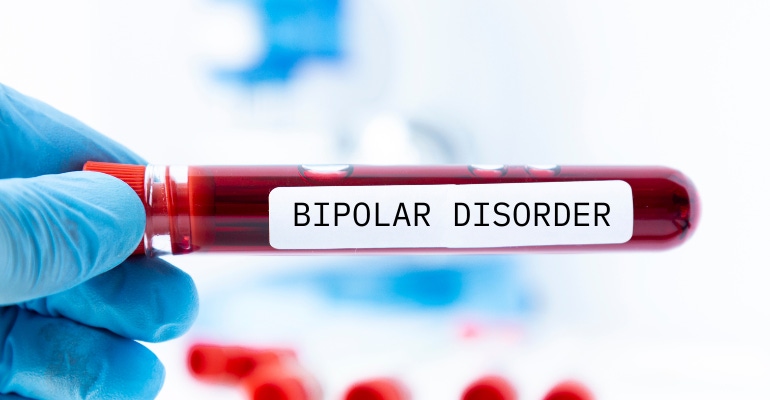Blood Test Paves the Way for Better Bipolar Diagnosis
Researchers in France have developed the world's first diagnostic blood test to distinguish between unipolar depression and bipolar depression.
June 15, 2022

The process for diagnosing bipolar disorder is complex and lengthy, resulting in diagnostic delays of 7 years or more on average. Now, researchers in France have identified and validated a combination of blood biomarkers specific to bipolar disorder, which has led to the development of the world's first diagnostic blood test for the disorder.
The work was completed by a team of researchers from Alcediag, a French company specializing in precision psychiatry; Montpellier University Hospital; Les Toises Psychiatry Centre in Lausanne; and the University of Pittsburgh. The research was recently published in Nature: Translational Psychiatry. The study identified a panel of six blood biomarkers, major hallmarks of bipolar disorder.
Bipolar disorder is a chronic disorder characterized by alternating depressive and manic phases. The depressive phases are similar to the symptoms of unipolar depression, yet, the management and treatments for bipolar disorder and depression differ significantly.
The study, led by Alcediag, included a cohort of 410 subjects. According to the company, the newly developed blood test demonstrated high diagnostic performance, specificity, and sensitivity greater than 80%. Alcediag said the test was developed using a combination of RNA editing and artificial intelligence. The six blood biomarkers identified match modifications in the RNA sequence of genes associated with bipolar disorder, the company noted.
The research is continued by a European project called EDIT-B, named after the test, and supported by the European Institute of Innovation and Technology for Health. The project aims at regulatory validation according to the European regulation IVDR 2017/746. The public-private partnership was launched in March.
"I am happy and proud to see this paper published in Nature Magazine's journal of Translational Psychiatry," said Dinah Weissmann, Alcediag's deputy CEO. "The importance of our team's work is in harnessing the power of RNA editing, a mechanism which regulates RNA stability, splicing, gene expression and protein synthesis to create a high-performance test that is able to differentiate between Unipolar Depression (UD) and Bipolar Depression (BD), thus paving the way to faster and more accurate diagnosis."
About the Author(s)
You May Also Like



.png?width=300&auto=webp&quality=80&disable=upscale)
